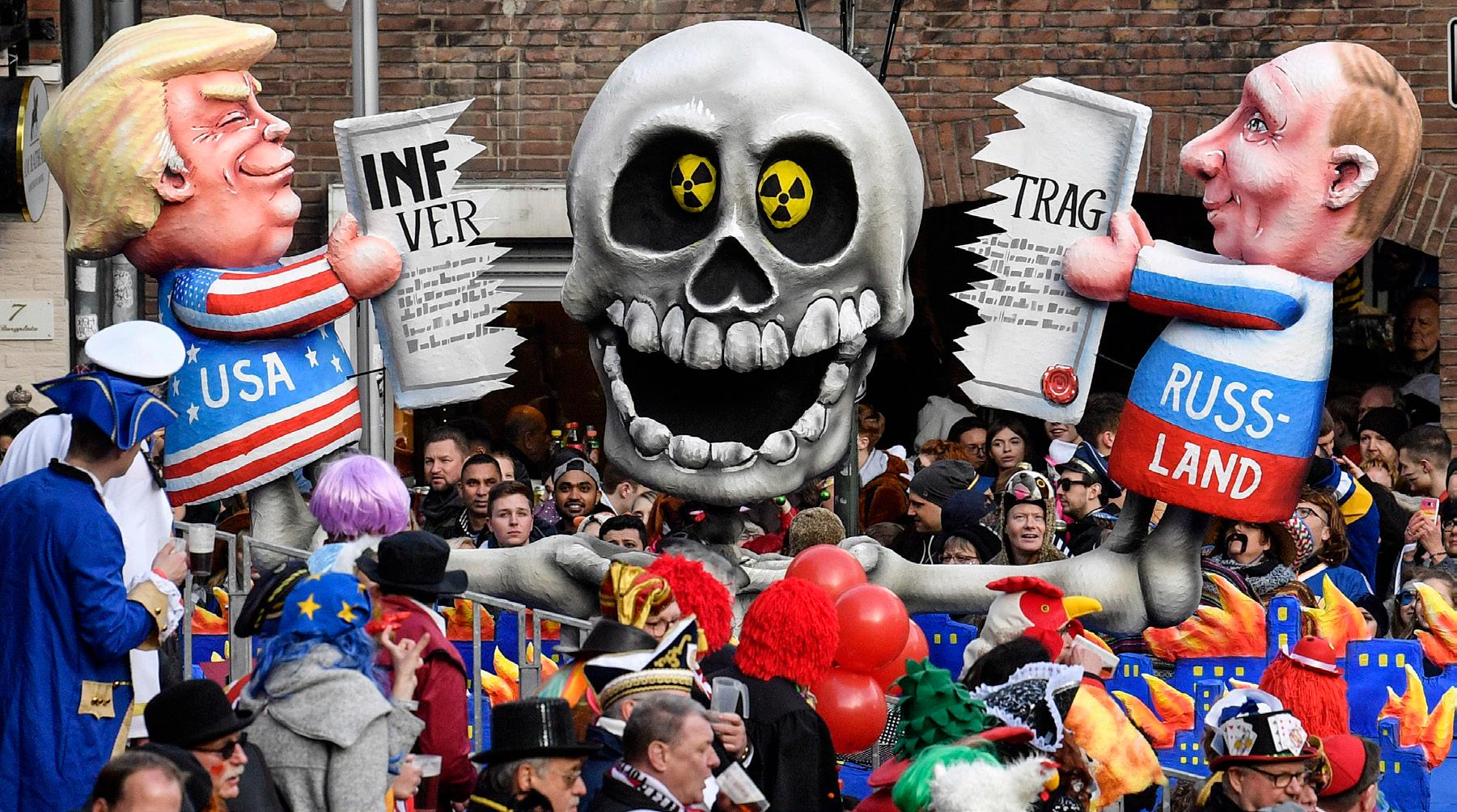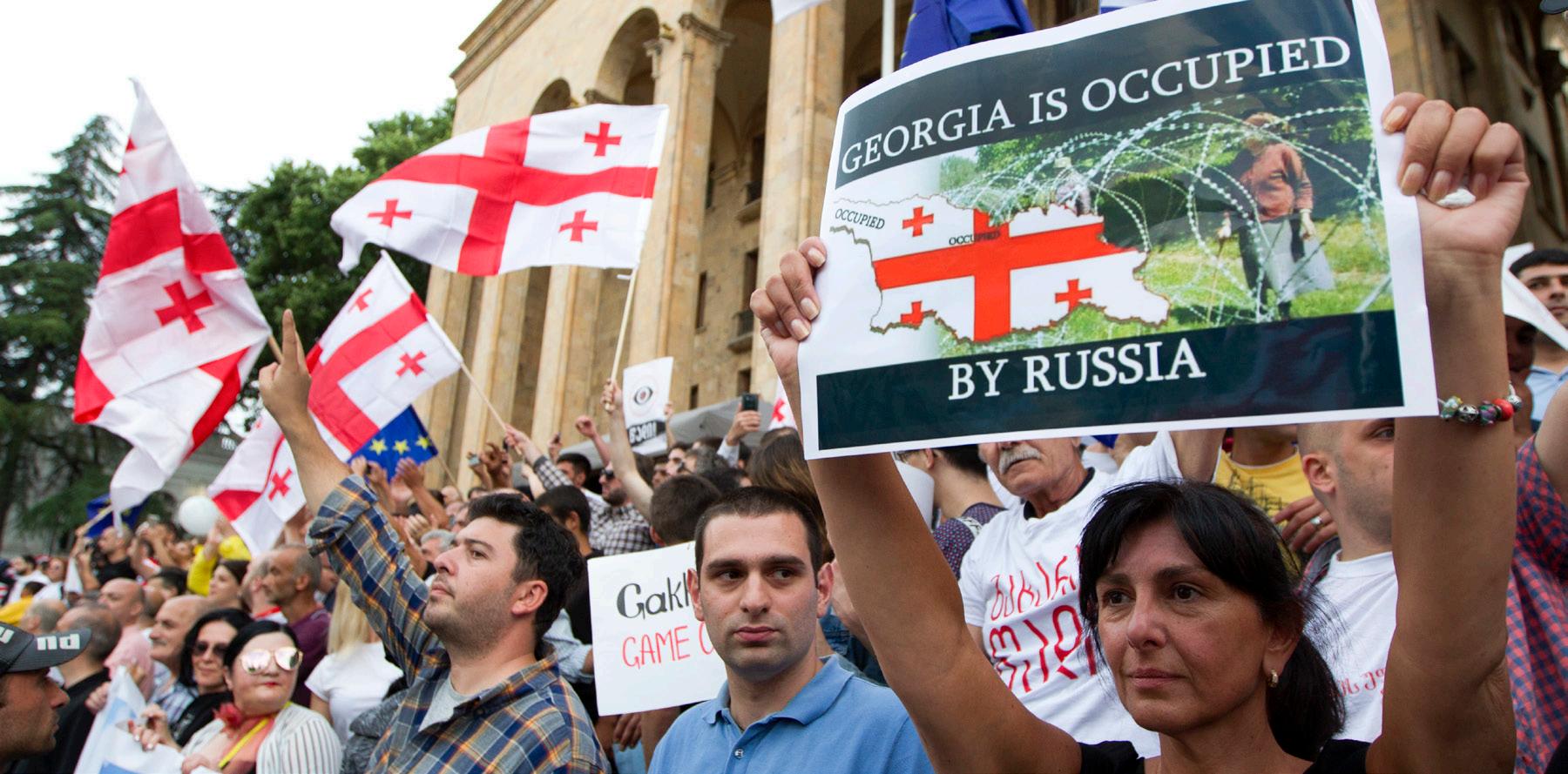
10 minute read
ON POST-SOVIET CONFLICT AND SIMULATING NEOGOTIATIONS: INTERVIEW WITH ARVID BELL
ON POST-SOVIET CONFLICT AND SIMULATING NEGOTIATIONS INTERVIEW WITH ARVID BELL
Kendrick Foster Senior Solicits Editor
Advertisement
Arvid Bell is the director of the Negotiation Task Force at Harvard University’s Davis Center for Russian and Eurasian Studies. He focuses on negotiations in the post-Soviet sphere and designing immersive negotiation simulations, including the NTF’s annual Red Horizon exercise.

Could you start off by telling us more about your work at the Negotiation Task Force?
The Negotiation Task Force is applying negotiation analysis methods to security and other problems across the Eurasian sphere. We're looking at conflicts ranging from Europe, especially Eastern Europe, Central Asia, all the way to Asia. And we are trying to make sense of them from a negotiation perspective. And then we do research and training work. We have different offerings for Harvard students all the way to senior practitioners from the government and military who participate in our advanced negotiation training programs.
Could you talk about your approach to Red Horizon, given that these are experienced negotiation practitioners and the approach to bringing together knowing and doing will be a little different than for undergrads?
Absolutely. Red Horizon is the most advanced training scenario we have in our portfolio. It is a three day, highly advanced workshop, which features a day long, highly immersive systemic negotiation and crisis management exercise for up to 70 participants, most of who are se-
nior government or military officials. Over the course of almost a year, our research team analyzed and then duplicated the internal decision making structures of the United States, Russia, China, and NATO as it relates to political and military chains of command in crisis situations. We have the top political and military leadership reflected in this scenario, and it's a very, very immersive, highly realistic exercise. It unfolds over dozens of rooms that we decorate as political or military headquarters. We have a digital combat simulator where people can track their military assets in real time. For example, if you are based in the American military room, you have all these screens on the wall with where bombers and fighters and aircraft carriers are positioned. If political leadership decides to make certain decisions, the military leaders need to figure out how they can adjust the force posture accordingly and move units around. Other countries will be able to track these movements through their military headquarters in real time, and then their military leaders consult with their political leaders and must figure out a response. It's a very advanced system.
In addition to this military side, all actors also have the option to engage in political action. For example, they can attend UN Security Council meetings and try to negotiate issues diplomatically. Because it's a global scenario, it features a variety of different hotspots where the situation can spiral out of control depending on what negotiators do. The main crisis is about a North Korean regime collapse, but because actors have assets positioned all around the globe and because the scenario is very deep in terms of its realism, the situation in Europe may escalate, something could happen in Africa or someplace else. It's very challenging to manage all these conflicts simultaneously.
Moving away from negotiation exercises into negotiations themselves, can you talk about the most recent developments in the real world from the negotiations between Russia and Ukraine? Ukrainian president Volodymyr Zelensky met Vladimir Putin in December 2019. How did that turn out? Did anything come of that?
So I think it still remains to be seen if there will be some real sustainable change on the ground. The situation in Ukraine is still an ongoing conflict; that's something we often forget. There are still people dying. Yes, it's not as bad as the hot phase of the war, but this is not a frozen conflict.
There are some hopeful signs; the Ukrainian and Russian presidents made some moves towards de-escalation. But the conflict in Ukraine is so intertwined with the relationship between the United States, Russia, and the European Union, it's very difficult for negotiators on the ground to make meaningful progress without being given a little more breathing space. Of course, the pandemic has added an additional layer of complication. I think there's still hope that things will change, but because of these interconnections between the local conflict and the broader strategic issues, it's a bit of a complicated situation.
What do you think caused the failure of the talks to renew the INF Treaty with Russia in 2019?
When it comes to the Intermediate Range Nuclear Forces Treaty, which was negotiated in the late 1980s between Reagan and Gorbachev, it makes sense to distinguish between political and technical aspects of these negotiations. This treaty was pretty revolutionary when it was signed, because it did away with an entire weapons category. Namely, all nuclear and conventional ground launched ballistic and cruise missiles with ranges of 500 to 5,500 kilometers in the possession of the United States and the Soviet Union back then were destroyed, not just in Europe, but worldwide, even though it was mostly about the European theater. Since then, not only has technology evolved significantly, but the overall political situation has also changed dramatically.
I think this is where two issues need to be resolved. First, negotiators have to figure out how they can account for the development of new weapons categories and systems in a renegotiated INF Treaty. Tactical nuclear weapons, long-range precision strike technology, hypersonic glide vehicles, etc. This is complicated because then the issue becomes not just about an extension of a treaty but a renegotiation, which is very difficult. It’s not made easier by the fact that a lot of the technical arms control expertise in the respective foreign ministries has eroded since the end of the Cold War,
so you simply don't have that many people left dealing with all these technical details. The second aspect are the political circumstances, which might be the bigger problem. This relates not only to the very complicated relationship between Washington and Moscow, but also to the question of other actors who have these missiles. How do you bring China into the equation, for example? Because the Chinese have not voiced any desire to be part of any intermediate range nuclear forces disarmament or arms control regime, should Washington and Moscow move forward without them, or should they try to bring them in? If so, how?
One way to look at that is to think about it from the short term perspective of the United States and Russia. You might say the good thing is to get rid of those shackles, and we can invest in all these weapon systems; arguably, it's way less problematic for American security than for Russian security that this treaty goes away. And the current US administration does not seem to be a fan of international agreements in general, as they pulled out of INF, Open Skies, the Iran nuclear deal, and the Paris Agreement. But there are at least two things that you don’t consider coming from that perspective. The first is the security of America’s European allies, who are deeply worried about an arms race on the European continent because they would have to carry the burden of that if the situation gets out of control. Maybe if the Europeans were a bit more vocal about their security interests, it could influence the calculus in Washington. The other thing is also, isn't there something to be said about the United States and Russia now taking the lead on arms control, as long as they still are in the position to shape the global arms control regime before China's rise accelerates even more? Wouldn’t it make sense for Moscow and Washington to figure out where they actually share some interests? The nuclear issue is still pretty much a bilateral game between the United States and Russia. By far, the vast majority of the nuclear stock globally is American or Russian. So there's also a sense of shared responsibility that these two countries have.
Unfortunately, the INF Treaty has now collapsed. And experts say that the next treaty to sadly go away might be New START, which is coming up for an extension next year. I think it's one of those situations where leaders in both countries need to look beyond the short term interests and think about the long term interests here. In the long run, you do de-escalate some of the great power tension through smart, renegotiated arms control, allow your country to spend its limited resources on other important priorities, and you make the world a more secure place for everyone.
A carnival float depicts Donald Trump and Vladimir Putin cutting the INF Treaty. Duesseldorf, Germany. March 2019.


Opposition demonstrators protest police violence and the government's policies toward Russia. Tbilisi, Georgia. June 2019.
In the last iteration of the post-Soviet conflict class, you did an immersive simulation to these three conflicts. Were there any things in the simulation that give you hope for these three conflicts or these three negotiations moving forward?
Let me say two things. For our capstone exercise on the future of Georgia, we brought in a couple of external participants to negotiate directly with our students. One thing that was very interesting to see as we conducted this negotiation exercise was that people who had more experience or prior training were more effective negotiators. I was also very happy to see that the students taking this class did a couple of things that good negotiators do, such as asking more questions, not just talking all the time, or looking beyond someone’s position and trying to figure out their underlying interest. That's something that my students have in common with some of the people who are more experienced and have seen it over a decade or so of negotiation experience. That gives me hope that training and knowledge and education matters. It matters if you're genuinely interested in international affairs as a Harvard student, and that attitude of curiosity carries over into your professional life. So that gives me hope.
The other aspect is somewhat related. We had an interesting development, also in our Georgia negotiation, where we had large teams negotiating, maybe four or five people on one team, on the Russia team or the America team or the Georgia team. And I should note that we really had, in addition to the Harvard students, individuals from Russia and a few with Georgian backgrounds who participated in this. There was a moment when tensions between two teams were very, very high. I think it had to do more with developing this “us versus them” mentality without a reality check on whether they were reading the other side correctly. One of the mediators, who represented the OSCE, was able to very skillfully de-escalate tensions by pointing out some misperceptions that one team had about the other side. And I think this is something that is also very true for a lot of complex conflicts: If you have third parties who can provide a different perspective of looking at issues, you might be able to force actors who are very entrenched to rethink some of their assumptions. It might be as simple as, “Are you really so sure that everyone on the other side is not even interested in this agreement?” Or, “Yes, maybe there was this one public statement that was rather harsh, but don't you think there are people in this other ministry on the other side who are very interested in negotiating? Maybe we should talk to them.” It's very easy to see the other side as a monolith, but once you dig a little deeper and ask a lot of questions, you will see that it’s actually so much more nuanced. Somewhere there is an opening for negotiations. You just have to find it. This interview has been lightly edited for length and clarity. H










